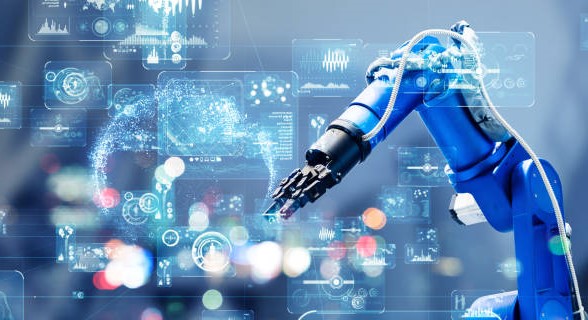Introduction
As the development of artificial intelligence (AI) continues to progress, many people are wondering whether their jobs are at risk of being automated. The fear of losing jobs to machines has been around for centuries, but with AI becoming increasingly sophisticated, it is a concern that is more relevant now than ever before. While some industries will inevitably see a reduction in human labor as a result of AI, others may not be affected at all. In this article, we’ll take a closer look at which industries are most at risk of being impacted by AI, and what workers can do to prepare for the changes that lie ahead. Whether you’re a software developer or a truck driver, understanding the potential impact of AI on your industry is crucial for staying ahead of the curve and ensuring your job remains secure.
Which Industries are most at Risk of being Impacted by AI
One of the most at-risk industries is manufacturing, where robots have been used for decades to perform repetitive tasks in assembly lines. However, with recent advancements in AI technology, robots are now able to learn and adapt to new tasks, making them even more versatile and capable of taking over jobs that were previously thought to be safe from automation.
Another industry that is at risk is transportation. With the development of autonomous vehicles, truck drivers and delivery drivers may see their jobs become obsolete. Self-driving cars and trucks are already being tested on public roads and highways, and it is only a matter of time before they become mainstream.
The healthcare industry is also at risk of being impacted by AI. With the ability to analyze vast amounts of medical data and assist with diagnostics, AI-powered tools are already being used by doctors and nurses to improve patient care. While AI will not replace doctors and nurses, it may lead to changes in how healthcare is delivered and the types of jobs available in the industry.
Other industries that are at risk of being impacted by AI include finance, customer service, and administrative work. With the ability to analyze data and automate tasks, AI has the potential to change the way these industries operate and the types of jobs available within them.
What Workers can do to prepare for the changes that lie ahead?
As the impact of artificial intelligence continues to grow, it’s becoming increasingly important for workers to prepare for the changes that lie ahead. Here are some steps that workers can take to adapt and thrive in an AI-driven world:
1. Upskill and Reskill: One of the most important things that workers can do is to continuously learn and improve their skills. This can involve taking courses, attending workshops or conferences, and seeking out mentors or experts in their field. By upskilling and reskilling, workers can acquire the new skills and knowledge needed to work effectively with AI and adapt to new job roles as they emerge.
2. Embrace a Growth Mindset: Another key factor in preparing for the future is having a growth mindset. This involves being open to new ideas, learning from mistakes, and constantly seeking to improve. Workers who have a growth mindset are more adaptable and better able to navigate changes and challenges in their careers.
3. Build a Diverse Network: In an AI-driven world, building a diverse network can be an important factor in career success. This can involve connecting with people from different industries, backgrounds, and perspectives, as well as seeking out mentors and sponsors who can offer guidance and support.
4. Stay Informed: Staying up-to-date on the latest trends and developments in AI can be an important part of preparing for the future. This can involve following industry news, attending conferences and events, and engaging with online communities and social media groups.
5. Seek Out Opportunities: Finally, workers who want to prepare for the changes ahead should be proactive in seeking out opportunities to work with AI and gain new experiences. This can involve volunteering for AI-related projects or initiatives, seeking out internships or apprenticeships, or taking on new job roles that involve working with AI.
By taking these steps, workers can prepare themselves for the changes that lie ahead and position themselves for success in an AI-driven world. While there may be challenges and disruptions along the way, those who are adaptable, resilient, and forward-thinking will be well-positioned to thrive in the years to come.
Thoughts
The impact of AI on the job market is inevitable, and workers need to prepare themselves for the changes that lie ahead. While some industries may be more at risk than others, the reality is that no job is completely safe from the influence of technology. However, by staying informed about the latest trends and advancements in AI and acquiring new skills and knowledge, workers can position themselves to adapt to the changing job market and thrive in the age of automation. The key is to embrace the changes and view them as opportunities for growth and development, rather than as threats to job security.



